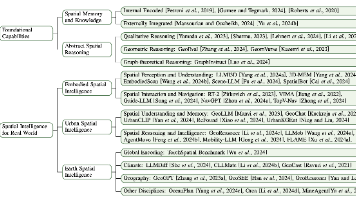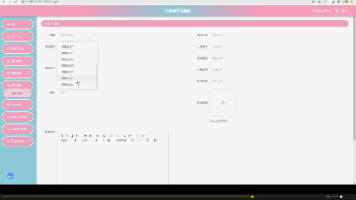LeetCode //C - 903. Valid Permutations for DI Sequence
Summary: The problem involves counting valid permutations of integers 0 to n that satisfy given 'D' (decreasing) and 'I' (increasing) constraints. The solution uses dynamic programming (DP) with prefi
903. Valid Permutations for DI Sequence
You are given a string s of length n where s[i] is either:
- ‘D’ means decreasing, or
- ‘I’ means increasing.
A permutation perm of n + 1 integers of all the integers in the range [0, n] is called a valid permutation if for all valid i:
- If s[i] == ‘D’, then perm[i] > perm[i + 1], and
- If s[i] == ‘I’, then perm[i] < perm[i + 1].
Return the number of valid permutations perm. Since the answer may be large, return it modulo 1 0 9 + 7 10^9 + 7 109+7.
Example 1:
Input: s = “DID”
Output: 5
Explanation: The 5 valid permutations of (0, 1, 2, 3) are:
(1, 0, 3, 2)
(2, 0, 3, 1)
(2, 1, 3, 0)
(3, 0, 2, 1)
(3, 1, 2, 0)
Example 2:
Input: s = “D”
Output: 1
Constraints:
- n == s.length
- 1 <= n <= 200
- s[i] is either ‘I’ or ‘D’.
From: LeetCode
Link: 903. Valid Permutations for DI Sequence
Solution:
Ideas:
-
Rank-based DP avoids dealing with actual values 0…n; only relative order matters.
-
Transitions follow the “I”/“D” constraint via ranges over previous ranks.
-
Prefix sums turn each transition from O(n) to O(1), giving total O(n²) time and O(n) space.
Code:
#define MOD 1000000007
int numPermsDISequence(char* s) {
int n = (int)strlen(s);
// dp has size (i+1) after processing i characters of s[0..i-1]
int dp[205] = {0}, ndp[205] = {0}, pref[205] = {0};
dp[0] = 1; // length 1 sequence (only one number)
for (int i = 0; i < n; ++i) {
// prefix sums of dp[0..i]
long long run = 0;
for (int k = 0; k <= i; ++k) {
run += dp[k];
if (run >= MOD) run -= MOD;
pref[k] = (int)run;
}
if (s[i] == 'I') {
// new size: i+2 (indices 0..i+1)
for (int j = 0; j <= i + 1; ++j) {
// sum_{k=0..j-1} dp[k]
if (j == 0) ndp[j] = 0;
else ndp[j] = pref[j - 1];
}
} else { // 'D'
for (int j = 0; j <= i + 1; ++j) {
// sum_{k=j..i} dp[k] = pref[i] - pref[j-1]
long long val = pref[i];
if (j > 0) {
val -= pref[j - 1];
}
val %= MOD;
if (val < 0) val += MOD;
ndp[j] = (int)val;
}
}
// move ndp -> dp, clear ndp
for (int j = 0; j <= i + 1; ++j) {
dp[j] = ndp[j];
ndp[j] = 0;
}
}
// answer = sum of dp[0..n]
long long ans = 0;
for (int j = 0; j <= n; ++j) {
ans += dp[j];
if (ans >= MOD) ans -= MOD;
}
return (int)ans;
}
更多推荐
 已为社区贡献28条内容
已为社区贡献28条内容








所有评论(0)